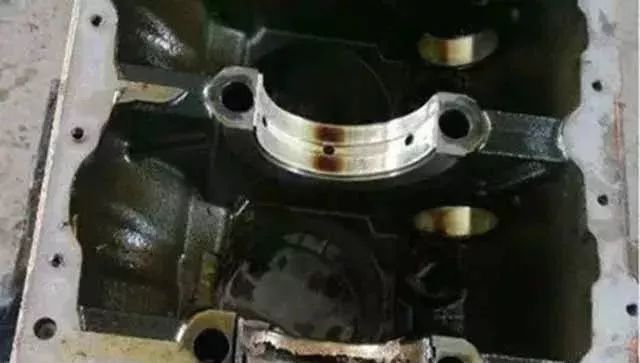Engine burning tile is also known as scratching tile, holding tile. If the tiles of crankshaft bearing and connecting rod bearing are poorly lubricated, it will cause wear and tear and other phenomena, which is a serious and extremely harmful fault. Scratches, severe cases will "hold the shaft" and even break the crankshaft.
The following is a brief analysis of several common reasons for the engine to hold the tile.
In most cases, the engine is locked due to poor lubrication of the engine oil. The working conditions of the engine are relatively poor, and the engine heat load and high temperature are prone to occur. If the appropriate grade of oil cannot be selected according to the usage regulations or the fake and inferior oil cannot be used to provide good lubrication for the bearing bush, abnormal wear of the bearing bush will occur, and long-term operation will eventually lead to the failure of the bearing bush.
Some engines have bearing failure due to insufficient preload height when the bearing is assembled. If the preload height of the bearing bush is not enough, the fit between the bearing bush and the seat hole on the seat body will be insufficient, which is not conducive to the heat dissipation of the bearing bush, which will cause the bearing bush to be seized, and the bearing bush will rotate in the seat hole, resulting in abnormal wear of the bearing bush seat. The rotation causes the oil hole to be blocked, and the temperature of the bearing bush rises until it burns out and the failure of holding the bush occurs.
If the preload height of the bearing bush is too large, it will also cause the bearing bush. If the preload height of the bearing bush is too large, the bearing bush will be deformed after assembly, the surface of the bearing bush will be wrinkled, and the matching gap between the bearing bush and the crankshaft will be damaged, which will eventually lead to the failure of the bearing bush.

